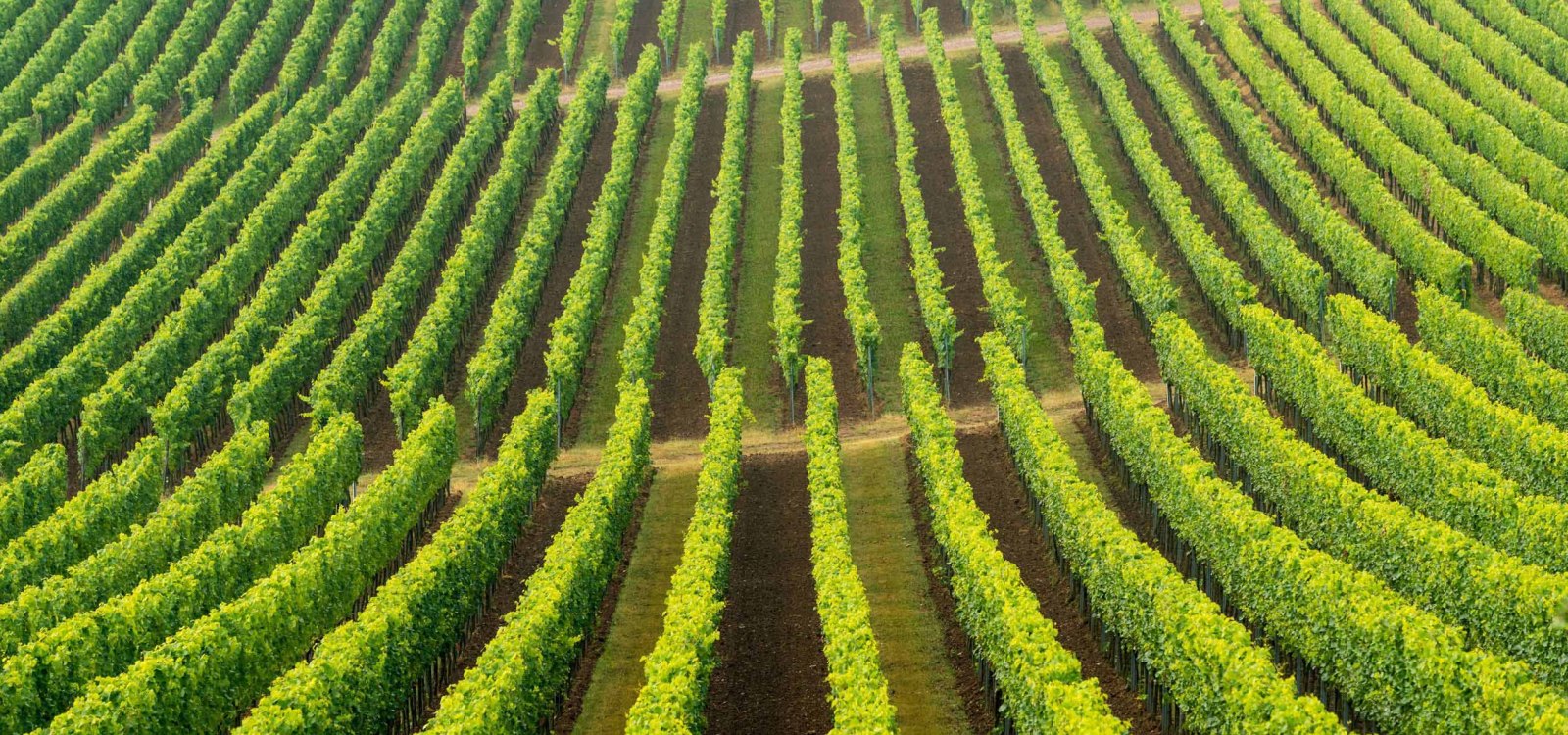
searchMenu



Of prehistoric horses, saber-toothed tigers and hares The hare gave its name to the single location. Moreover, the Middle High German word "spring/sprung", which has nothing to do with hopping, but means "spring". Hare, deer, fox, badger certainly roam the area between the three villages Dorn-Dürkheim, Wintersheim and Hillesheim. And yet there were once quite wondrous animals here: prehistoric horses, rhinoceroses or saber-toothed tigers. The found remains of 80 vertebrate species are about 8.5 million years old and thus belong to…

Peace cross, fruit trees and heat-loving vines This single vineyard is located east of Bingen-Dromersheim, on the western flank of the Jakobsberg. At the top of the mountain: a pilgrimage monastery with a history dating back over 300 years and still inhabited by monks. The Klosterweg is a direct pedestrian link between the village and the monastery. Hikers and mountain bikers will find beautiful resting places with a view, including one stop at the peace cross. Fruit trees flank the paths. The name of the single vineyard was first coined in…

Church, cliff and wines from the volcano On the southern border of the district lies the "Beller Kirche", a late Gothic ruin with a high choir, typical for Rheinhessen. The alter dedicated to St. Mary was completed in 1490, the nave in 1519. Today, the ruin is a venue for events, including wine tastings. The single vineyard "Eckelsheimer Kirchberg" refers to this church. The vines are rooted in gravel sand and exceptional volcanic stone. 30 million years ago, the whole region was flooded by a subtropical sea. The coastline of that time, the…

Romantic or economic thinking? Successful either way. Was it delightful field flowers, such as corn poppies or delphiniums, that led to the name? Or does it refer – not very romantically - to the Middle High German word "blum" for yield? Did a Mister Blume once live here? We do not know. The lime and sandy marl soil is rich in nutrients and well aerated. The wines from this top vineyard seem particularly aromatic and delicate. Riesling, Chardonnay, Müller-Thurgau, Scheurebe and Portugieser grow here. > To the single vineyards…

Time out for sophisticated Rieslings and Pinot Noirs Goat? Difficult soil? Jacked up? In German, all these words include the expression “Bock”. There are various interpretations on where the vineyard’s name is originated. Did the Romans once sacrifice goats here? Not very likely. The brown loam limestone soil can certainly be difficult sometimes. Or this is at least, what the winemakers say. Jacked up could be right, because in the area of the single vineyard there was once a resting place on the old army road. A rack for…

Small, fine, French – the small temple surrounded by vines It is one of the smallest single vineyards in Rheinhessen: the "Elsheimer Tempelchen" with ten hectares of vineyards (six hectares planted, as of 2021) is surrounded by a stone wall. Just like in France? Yes! In the center of the vines an arcaded hall with pillars and a sundial is visible from afar. The "little temple" was probably built in Napoleonic times. The Windhäuser Hof, above the single vineyard, was the summer residence of Baron Jeanbon St. André. He sent…

Walking aristocrats? No, melting Rieslings Did nobles once walk here? But did they not prefer to ride high on horseback or sit in carriages? The vineyard was first mentioned in a document in 1370 with the name "an dem adelphade" (eng. “by the noble path”). The name is not based on the status of the bypassers, but refers to a ditch. Even today, the meadow ditch runs across the site, with the Selz river flanking one side of the vineyard. The soil is deep, clayey and heavy, with a lot of lime. Full-bodied Müller-Thurgau or…

Of ships, vineyard towers and vine diversity Middle High German always has surprises in store: Kachel is derived from "kocke" and means a broad ship with a rounded front. The roundish shape of the hill evokes associations with this comparison. The location was first mentioned in a document in 1442 with the name "in kachelberge". In the middle of the hill: the newly built Ensheim vineyard tower - like a mast on a ship! From there you have a magnificent view of southern Rheinhessen, as far as Odenwald and Pfälzerwald. The winegrowers…

Where Dinotherium once dwelt - limestone for Pinot vines As the name suggests, the soil here is not light and airy. No sand, no loess, but heavy, stony soils. The single vineyard "Eppelsheimer Felsen" is a limestone marl site. The soils are the result of limestone weathering, also known as "terra fusca" or "terra rossa". From the Latin "terra" for land or earth. "Fuscus" stands for brown, "rossa" refers to the reddish colouring caused by iron oxide. In this vineyard, the winegrowers cultivate a wide variety of vines, often Pinots. Eppelsheim…

Devilishly good Rieslings and Pinots This single vineyard flanks the municipality of Essenheim in the direction of Ober-Olm and Stadecken-Elsheim - with a view into the Selz Valley. Was the devil at work here? Names with the compound "devil" often indicate disreputable localities. Sometimes, however, it is simply a personal name. In neighbouring Nieder-Olm there still is a street called Teufelspfad. Legend says: A thief planned to steal grapes in the vineyards. On his way, someone stopped him. When he turned around to see who was holding him…
Rheinhessenwein e.V.
Otto-Lilienthal-Straße 4
55232 Alzey
E-Mail: info@rheinhessenwein.deRheinhessenwein e.V.
Otto-Lilienthal-Straße 4
55232 Alzey
E-Mail: info@rheinhessenwein.de